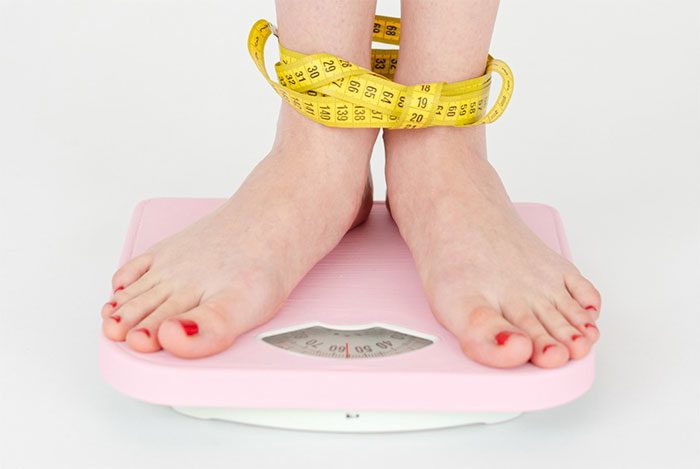According to statistics, among those who have successfully lost weight, only 11% maintain their results, while the rest gradually return to their original state.
This statistic was shared by Dr. Thai Van Hung, Deputy Head of the Endocrinology Department at Nguyen Tri Phuong Hospital in Ho Chi Minh City.
“Weight loss is not easy, and maintaining weight after losing it is even harder,” Dr. Hung stated.

People need to manage many factors well to avoid rebound weight gain after losing weight. (Photo: Pexels).
Causes of Obesity
“After many discussions worldwide, it has been concluded that high carbohydrate intake leads to obesity. Eating more causes insulin to increase. This hormone has two main functions: one is to help the body use sugar, and the other is to store fat.“ Dr. Cao Hoai Nhan from the Pediatrics Department at Nguyen Tri Phuong Hospital explained.
Individuals with overweight or obesity often experience a heavy mindset and stress due to their weight. During this time, the cortisol hormone is released even more.
Cortisol is a hormone produced by the adrenal glands, playing a crucial role in helping the body cope with stressful situations. However, prolonged high levels of cortisol can harm the body. Cortisol increases appetite and promotes fat storage, trapping individuals in a vicious cycle.
Moreover, many people eat multiple meals throughout the day, especially carbohydrates and sugary drinks, causing continuous insulin secretion. This is also a significant contributor to obesity.
“Currently, we eat many meals, consume too many carbohydrates, and drink excessive sugary beverages. The increased excess carbohydrates lead to elevated insulin, resulting in fat accumulation,” Dr. Nhan explained.
Insulin is a hormone secreted by the pancreas that regulates blood glucose levels. The higher the insulin level, the more glucose enters the cells. Any glucose that the cells do not use will accumulate as fat.
Therefore, if dietary habits do not change, the accumulation of fat and weight gain is inevitable.
On the other hand, according to Dr. Thai Van Hung, not everyone can maintain their weight after losing it. Once they have successfully lost weight, many become complacent and neglect exercise and healthy eating habits. Many even revert to high-fat, sugary, and carbohydrate-rich diets while being less active, making it easy for them to fall back into a weight gain cycle.
“Thus, only 11% of people who lose weight manage to maintain it; the rest almost all experience rebound weight gain. This phenomenon occurs when a person loses weight but cannot maintain a balanced diet and exercise regimen, leading to weight gain again,” this doctor explained.
What Can Be Done to Avoid Rebound Weight Gain?
According to Dr. Hung, individuals with a Body Mass Index (BMI) of 23 and above should seek early consultation from experts to establish an appropriate intervention strategy.
Managing overweight and obesity requires a multi-faceted approach that includes lifestyle factors such as physical activity, psychological therapy, and medication, especially nutritional therapy.
Based on the principle of balanced energy intake and expenditure, three popular weight loss methods today are low-carb diets, intermittent fasting, and the ketogenic diet.

Nutrition plays a crucial role in the weight loss process. (Photo: Pexels).
Dr. Hung emphasizes that obese individuals need to reduce their food intake but must ensure adequate protein levels for the body. Therefore, they require a suitable diet, focusing on high-protein and low-fat foods such as lean meats, shrimp, crab, fish, lean sausage, soy milk, low-fat cheese, eggs, and legumes.
Obese individuals should also prioritize fish over meat and opt for cooking methods such as boiling, steaming, or grilling with minimal oil.
If they choose to drink milk, this group should consume milk designed for those who are overweight or obese, fat-free unsweetened milk, calcium-rich milk, or low or no-sugar yogurt.
For carbohydrate-rich foods, obese individuals should select high-fiber options such as whole grain bread, whole grain cereals, and root vegetables. Additionally, during meals, they should eat slowly, chew thoroughly, avoid overeating, never skip meals, and not let themselves become too hungry to avoid overeating later. They should also refrain from eating after 8 PM.
Besides fiber-rich carbohydrates and protein, those who are obese should consume about 500 grams of green vegetables and ripe fruits daily, prepared in forms such as boiled, soup, salads, or raw. For fruits, they should stick to low-sugar options like apples, watermelons, plums, guavas, and dragon fruits.
When eating fewer carbohydrates and feeling hungry, Dr. Hung encourages people to increase their intake of fruits and vegetables or low-calorie foods that help them feel full, such as spring rolls with steamed fish and lots of vegetables.
In addition to food, those looking to lose weight should ensure they get enough vitamins and minerals, as diets below 1,200 kcal often lack essential vitamins and minerals such as calcium, iron, and vitamin E.
If aiming to lose weight, individuals should drink enough water, about 2-2.5 liters per day, and limit salt intake (to under 6 grams per day; for those with high blood pressure, only 2-4 grams per day).
Furthermore, Dr. Hung advises against certain foods during the weight loss process, including high-fat foods (fatty meats, meat broths, butter, pork hocks, etc.); high-cholesterol foods (brains, hearts, liver, kidneys, pig intestines, etc.); foods containing excessive fats (buttered bread, salad dressings, fried foods, etc.); high-energy foods (honey, jam, candy, pastries, chocolate, sugary drinks, etc.); and stimulants (alcohol, beer, coffee, etc.).
In addition to following a suitable diet, individuals should engage in at least 30 minutes of physical activity daily and ensure they get enough sleep, around 7-8 hours per night.
Moreover, to avoid weight gain, individuals should go to bed early, limit late-night activities, monitor their weight weekly, and have regular health check-ups every 3-6 months.





















































